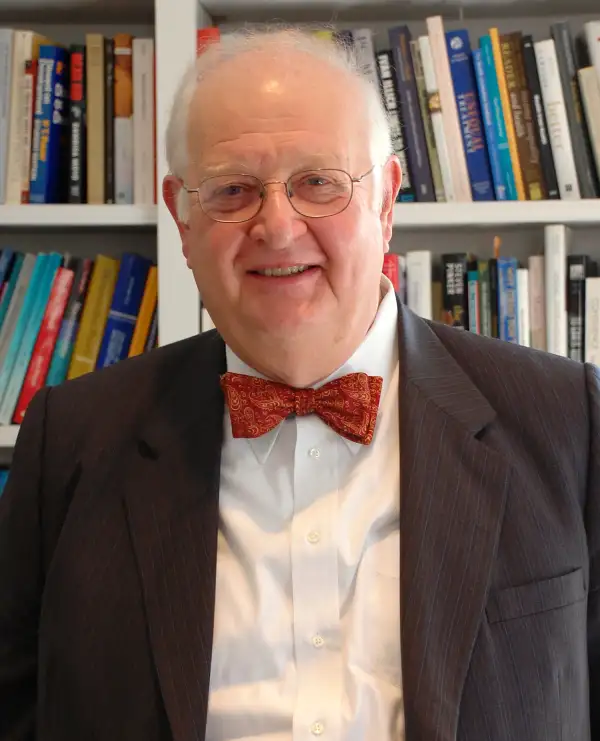What the New Nobel Prize Winner Has to Say About Money and Happiness

Before yesterday you might not have heard of Angus Deaton, the winner of this year's Nobel Prize in economics. But you probably did know something about his work—whether you realized it or not.
In 2010 the Scottish-American economist published a much-discussed study, co-authored with psychologist Daniel Kahneman (winner of the 2002 Nobel for economics), finding that happiness and income are correlated, but only up to $75,000.
This study—and others that refute or tweak its conclusions—have been ripping through Facebook news feeds for over five years now, and there's a lot of misunderstanding about what exactly the two Nobel laureates meant by it. Here's what Deaton and Kahneman actually said (and didn't say) about the relationship between money and happiness.
1. Money does buy emotional well-being, but only up to a point.
Basing their study on 450,000 survey responses from Gallup and Healthways, Deaton and Kahneman found that the higher the respondents' incomes, the more "emotional well-being" they tended to report. But that held true only up to an annual income of about $75,000. This makes intuitive sense because people who make significantly less than $75,000 spend a lot of their time worrying about basic necessities like having enough food to eat and covering the rent. Money can pretty easily alleviate those kinds of stress. (As TIME put it back when the study came out, "Having money clearly takes the sting out of adversities.") Not so the problems that pop up once those basic necessities are covered. Or to put it another way, richer people have a lot of problems that have nothing to do with a lack of funds.
2. The happiness tipping point could be $5,000 or $500,000—it's not really important.
Though the main point most people seemed to take away from Deaton and Kahneman's study was the relatively low $75,000 number—it was even brought up in Orange is the new Black and subsequent articles critiqued and updated that salary line—focusing on the number itself mostly misses the main point, which is that when it comes to improving day-to-day emotional well-being, money generates diminishing returns. In some subcultures and societies the number might be higher that $75,000; in others lower. (The data they used was generated by polling U.S. residents.) All the fuss over the $75,000 figure is especially silly when you consider that Deaton's core contribution to economics, as economist Justin Wolfers put it yesterday in the New York Times, has been "to shift the gaze of his fellow economists beyond measures of income, to broader measures of well-being."
3. Deaton's study did not support the claim of the Notorious B.I.G.
Biggie famously wrote that "Mo Money" causes "Mo Problems." But while Deaton and Kahneman did see day-to-day happiness top out at around $75,000, they found no evidence that it declines as income increases beyond that. Sure, maintaining a fleet of houses, a Gulf Stream, and a staff of 35 might cause some stress, but that isn't because you have too much money.
4. The $75,000 limit was about day-to-day happiness, not life satisfaction.
"Happiness" can mean different things to different people at different times. Deaton and Kahneman looked at two different definitions of happiness, one being day-to-day "emotional well-being" (How are you feeling today?) and the other "life evaluation" (Looking back on your life, how satisfied are you?). Only emotional well-being tops out around $75K, they found.
On the other hand, more money does appear to increase life evaluation without limit. As they put it in the study: "We conclude that high income buys life satisfaction but not happiness, and that low income is associated both with low life evaluation and low emotional well-being."
Read Next: What a Nobel Prize Is Worth